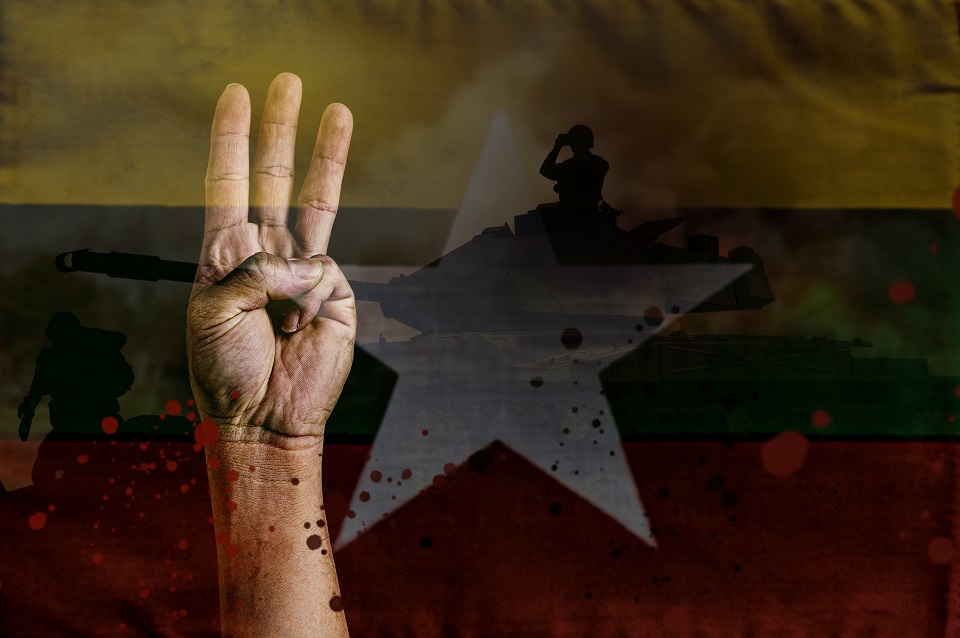The anniversary will be marked within Myanmar by a “silent strike”, with participants acknowledging those jailed or killed by the junta during the last year by avoiding public space, leaving Myanmar’s streets empty. The junta has threatened participants with decades-long jail sentences and property confiscations. But if previous calls for anti-coup resistance are an indication, tens of millions of people will stay home and Myanmar’s streets will be spookily empty.
Silent strikers have a lot of people to acknowledge. The junta has jailed 11,838 according to Myanmar’s Assistance Association for Political Prisoners. This included State Counsellor Aung San Suu Kyi, President Win Myint and as many of Myanmar’s civilian politicians as the military could round up and have killed – 1,503 – often with appalling cruelty.
In the immediate wake of the coup, hundreds of mostly young, peaceful protesters were killed by army snipers. In ethnic minority areas, soldiers replicated the kinds of scorched earth tactics used when the Tatmadaw genocidally deported the Rohingya in 2017.
Recent indiscriminate atrocities include the driving of a truck into a crowd of peaceful protesters, the burning alive of 11 people including four children in retaliation for an attack by anti-junta militia, and the massacre of 31 people fleeing violent clashes.
Rather than quelling popular opposition to military rule, the junta’s brutality and extreme violence has instead convinced many people of the necessity of removing the military from power for good. Resistance has encompassed a broad range of activities including peaceful protests that drew global attention, and civil disobedience and strikes that have paralysed the bureaucracy and transport sectors. Increasingly this has included violent opposition to the junta.
Resistance is strongly encouraged by the National Unity Government (NUG), a shadow government in exile that draws heavily from politicians elected at the 2020 general election. In September, NUG leaders announced a “defensive war” against the junta, encouraging the creation of People’s Defence Force militias to target the Tatmadaw and its assets.
These militias have increasingly linked with the armed wings of Myanmar’s ethnic minority groups, of which there are dozens, many of whom have themselves been in conflict with the Tatmadaw for decades. A nationwide united front of militias and ethnic armed groups has the potential to significantly stretch Tatmadaw capabilities.
Economic shambles
Creating a further challenge for the junta is the shambolic state of the economy. The World Bank estimated an 18% contraction during 2021 and predicted a paltry 1% growth in 2022, describing the economy as “critically weak”. The national currency, the kyat, has fallen to historic lows, losing 60% of its value in September alone.
The World Food Program estimated a 29% rise among a basket of basic foods, and a 71% hike in fuel prices during 2021, contributing to widespread food insecurity and pushing millions towards poverty.
The perilous state of the economy has revived memories of the shockingly poor economic management during previous periods of military rule which saw Myanmar (then Burma), in 1987, designated a “Least Developed Country” by the UN.
Article continues at...

For the full article by Ronan Lee, a Doctoral Prize Fellow from the University’s Institute for Media and Creative Industries, visit the Conversation webpage here.
